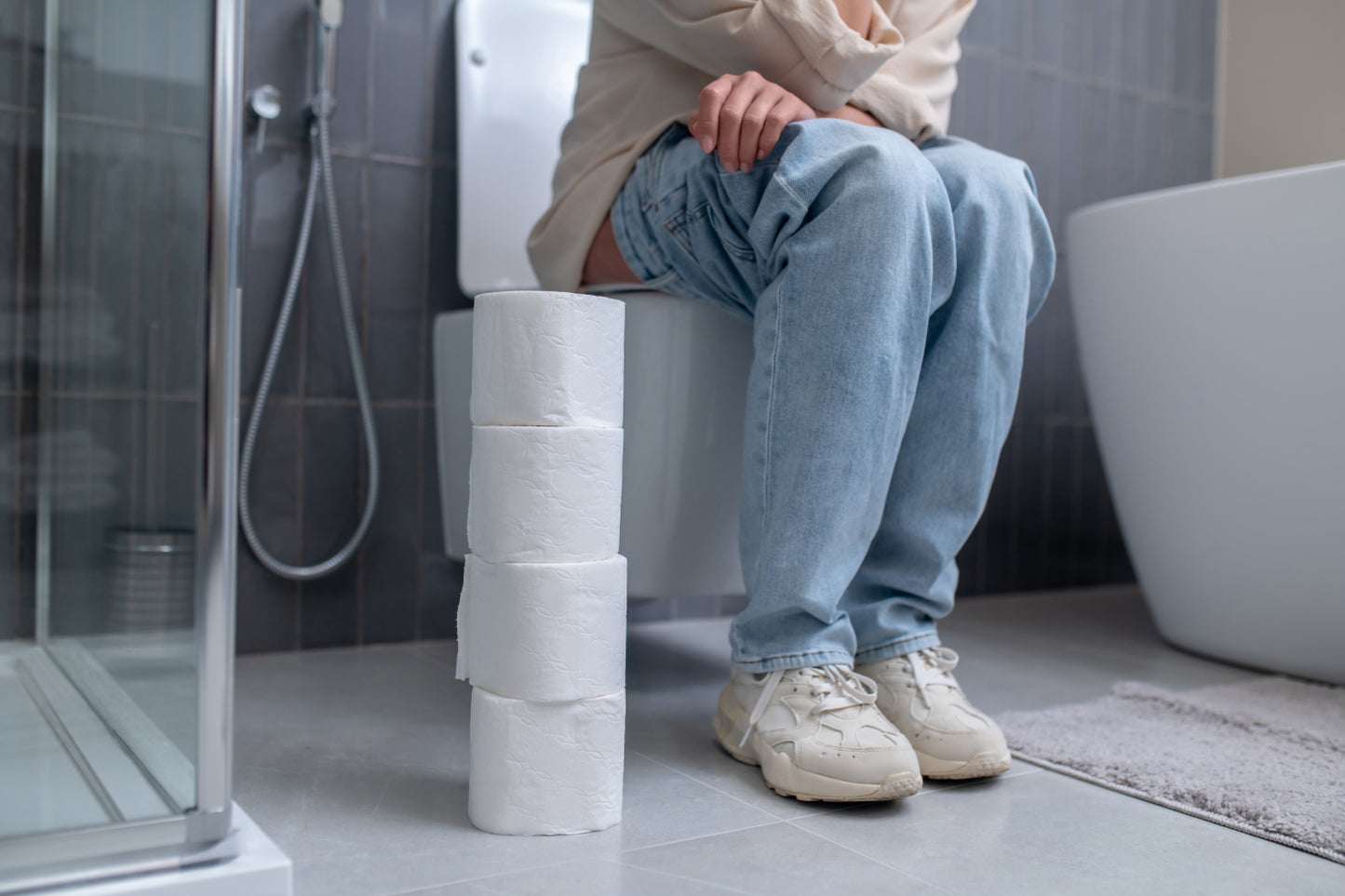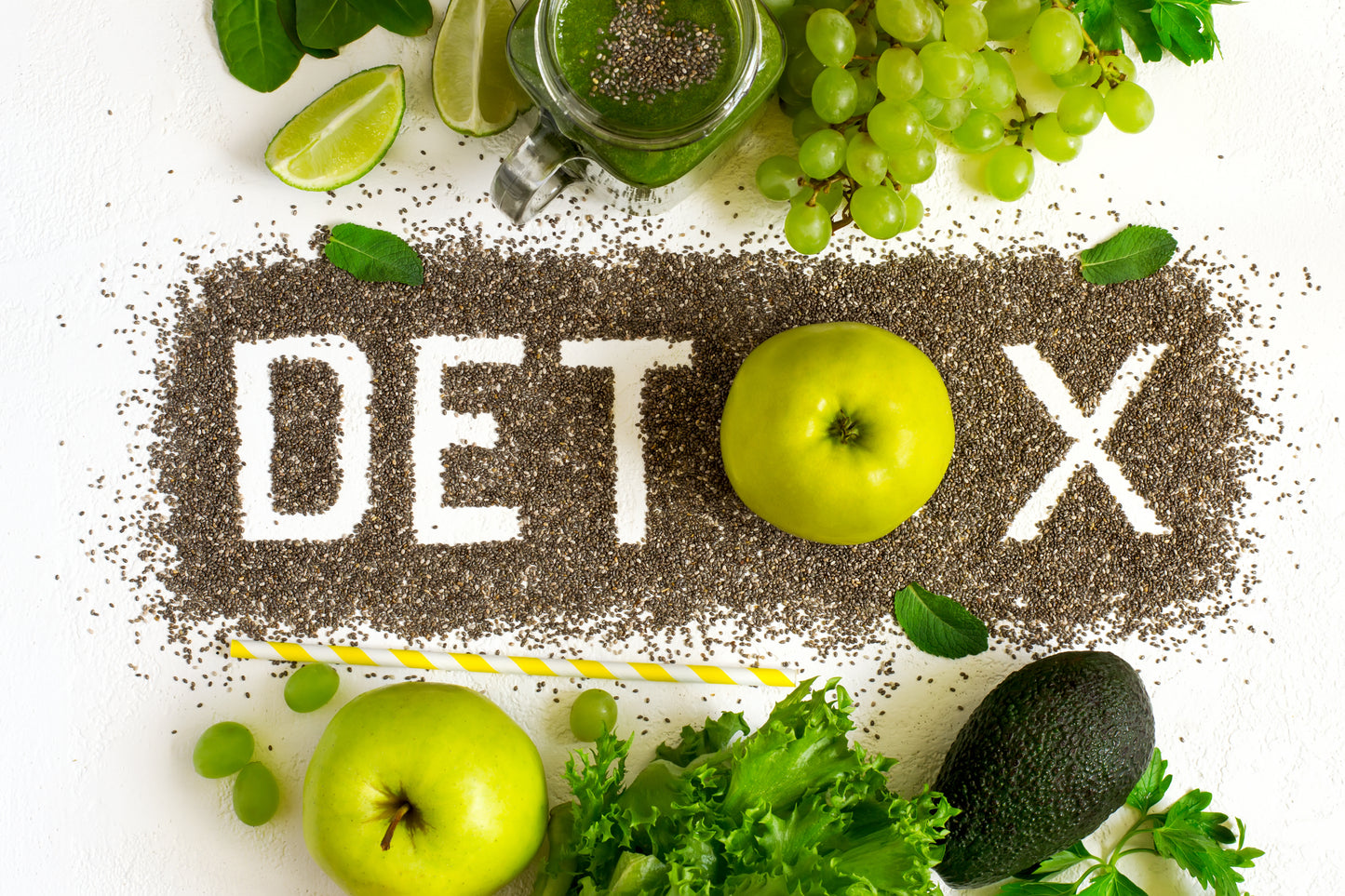
What Comes Out of Your Body When You Detox?
Detoxing is a popular way to refresh your body and mind. It’s gotten a lot of attention for its health benefits, from celebrities to everyday people looking for a restart on their health.
The most common question about detoxes is, “what exactly comes out of your body when you complete one?” People are curious to know and understand what a successful detox looks like, and they often expect to see extreme signs.
While the amount of toxins that leave the body is impressive, the best drastic change is how people feel about themselves afterward.
What Is a Detox?
A detox (or a detox diet) removes toxins from your body. The purpose is to detoxify the body from chemicals, pollutants, and other substances that have entered the body and have overburdened your normal detoxifying organs.
This is typically done by only drinking smoothies, using powders in drinks, or using a juice cleansedetox program for a set amount of time. This usually lasts for at least a few days and is usually followed by a diet of fresh fruits and veggies.
Thanks to your liver and kidneys, your body goes through a natural detoxification process constantly.
The liver’s role is to remove toxins from your bloodstream or convert substances to be less harmful to the body. Liver cells determine where and what should be stored in the body and what should be passed through stool. It also sends ammonia, an amino acid protein that can be toxic to the body, out of your body in urine.
Similarly, the kidneys act as a natural detoxification system to filter out waste material, like urea (a common byproduct of protein breakdown), in the bloodstream and expel it through urine.
However, toxins and fatty substances can stop these organs from doing their job as effectively. Your metabolism can also slow down, making it harder to process nutrients from food and beverages.
An irritated and porous gut may allow harmful particles to seep inside, disrupting your digestion. If you’ve been feeling bloated, experiencing diarrhea or gas, or suffering from acid reflux, you may need to give your gut the time to relax and repair itself.
Especially as we age and our bodies slow down, we could all use a little boost! A detox can help your body to take a needed rest from rigorous functions, allow nutrients to replenish, and help the body balance its overall functions.
Some detoxes target specific problems in the body, such as weight loss or breakouts. Other detoxes can help support your overall health and wellness. By detoxing, you could look and feel like a whole new person.
What Comes Out of Your Body When You Detox?
When you detox your body, you may notice more waste products coming from your body. This is from the built-up toxins you are flushing out.
Some of these toxins can include chemicals from the food you eat and healthcare products you use to environmental toxins we are exposed to on a daily basis (over 200, to be exact).
In 2021 alone, 67 million tons of pollutants were emitted into the United State’s air. Between industrial plants and everyday car emissions, toxins can get into the air through many avenues. The harsh chemicals in household cleaning products may also affect a person negatively after heavy use.
What’s more concerning is the effect of pollutants on the immune system after they enter your bloodstream. Anything from difficulty breathing, asthma, sore throats, and even more severe conditions such as COPD can escalate with pollutants. Unfortunately, there’s only so much the liver and kidneys can do to filter out every little toxic particle.
Some foods may also contain toxins, especially those packaged in plastic or aluminum cans. The most prevalent are BPAs, which may lead to diabetes or insulin resistance.
Between the air and the food we are exposed to, it’s no wonder that we can feel sluggish and tired and experience adverse side effects.
You might imagine toxins as oil spills, dirt, or other nasty substances. But the reality is that they can look a lot like the products we use in our everyday lives.
Thankfully, you won’t see many toxins released from your body, or at least anything out of the ordinary. Instead, you’ll likely just feel better.
How Can You Know When a Detox Is Working?
There are several ways to determine if a detox is working for you. While a detox may take several days to show significant results, that doesn’t mean you won’t see any signs that it is working right away.
On the first day, your body adjusts to the absence of solid foods or your favorite go-to snacks. You might feel a little cranky, so warn your loved ones.
However, you may notice feeling more energetic and less tired. You may also get a decent night’s sleep or feel more rested when you wake up. You may also notice feeling more focused.
You may also feel stronger, and any bloating, constipation, or other adverse digestive problems may subside. Your skin may look brighter and refreshed.
By the end of the process, your old cravings may dissipate, you might look and feel slimmer, and you might feel more comfortable. You might not feel the intense need to snack on salty or sugary foods, and you may feel more confident about your health journey.
Remember, you’ll need plenty of water. Your body needs lots of hydration to function, detox or not. Water helps the body’s organs properly flush toxins, so staying adequately hydrated is essential to maintain excellent results.
How Long Does a Detox Take?
Every detox is different and can take anywhere from a day to a few weeks. With Dr. Kellyann’s 5-Day Cleanse and Reset, it just takes—you guessed it—five days! We’ll break down the expected results day by day, though your experience may vary:
One Day
On the first day, you’ll be surprised to see how full of energy you are! The detox process will begin, and your body will be adjusting to the absence of solid foods. It might still be difficult not to reach for processed foods, but you’ll be strong enough to resist them and focus on getting the desired results. If you were experiencing brain fog, you might notice feeling more focused.
Three Days
By this point, you’ll notice your body adjusting to the detox. Your bloat may go down, and your digestive system can have the space it needs to repair and recover from any damage to the stomach and intestinal lining.
If you previously suffered from gas, excessive burping, acid reflux, infrequent bowel movement, and other digestive issues, you may notice easier digestion. Cravings should fade, and you may notice they subside entirely.
Five Days
After five days, you may feel like your body has been given a chance to breathe and reset. You may notice that you aren’t craving junk food. You may not only feel slimmer, but you might also be slimmer! Without excess bloating, fatigue, and other issues weighing you down, your detox can set you up for a routine of greater health.
If you want the best results after detox, keep hydrated, take your daily vitamins and supplements, and exercise regularly.
In addition to drinking water regularly, you can also benefit from a healthy diet filled with fruits, veggies, and whole grains. Explore tasty yet healthy recipes and see what works for you.
Some people take the opportunity to try out a new diet, such as keto or going vegan, to see how it affects their health long-term. And if you ever need another reset, another detox program may be in order.
The Bottom Line
A detox can help your body expel harmful toxins and buildups that slow you down. While detoxes come in many shapes and sizes, you can expect most detoxes to last at least a few days. When you detox, you can notice many health benefits, such as brighter skin, smooth digestion, and an overall feeling of rejuvenation.
With Dr. Kellyann’s 5-Day Cleanse and Reset Detox, you can feel and look lighter in just five days. Explore our blog for ideas and recipes to help you maintain your results after your first cleanse!
Sources:
Air Quality and Health | Minnesota Pollution Control Agency
Air Quality - National Summary | US EPA
National Report on Human Exposure to Environmental Chemicals | CDC
Relationship Between Urinary Bisphenol A Levels and Diabetes Mellitus | NIH








